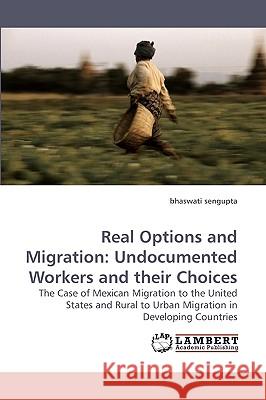Real Options and Migration: Undocumented Workers and their Choices » książka
Real Options and Migration: Undocumented Workers and their Choices
ISBN-13: 9783838315478 / Angielski / Miękka / 2010 / 104 str.
This work uses advances in Real Options Theory to develop a theoretical model of the migration decision under uncertainty. Prospective migrants face a future that evolves in new and unexpected ways, and the flexibility in responding to new conditions is an important consideration in the original decision to migrate. Real Options theory allows us to value this strategic flexibility as the future unfolds. Two specific instances of migration are analyzed within this framework: a prospective Mexican migrant considering work in the United States without legal documents and a rural worker in a developing economy moving to find work in the city. The uncertainty considered in these host environments stem from various sources such as the evolution of wages, the possibility of being apprehended and deported back to Mexico, the possibility of acquiring legal status for an undocumented worker or of finding formal sector work for an informal worker. The theoretical model for Mexico to U.S. migration is computationally solved and its implications are studied under different policy alternatives.











